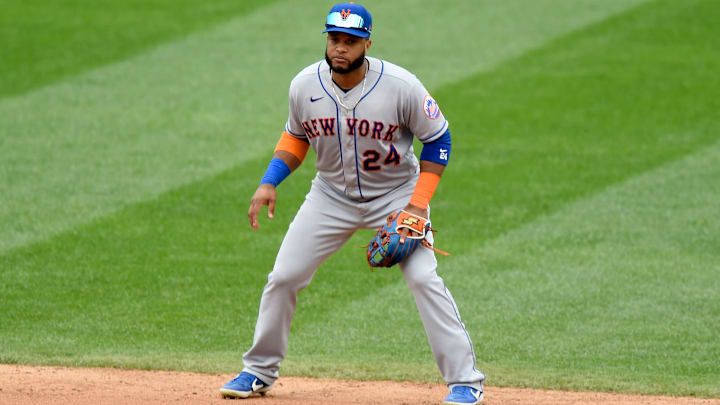
First, Cano’s age makes him more suited for a less demanding role. Although Cano is a two-time Gold Glove recipient, he simply does not have the same agility and defensive instincts that he once had. The past three seasons, he has compiled a -0.1 dWAR and has won a total of zero Gold Gloves during that time frame.
Like most ballplayers, Cano is not immune to Father Time, and there should be questions at this stage in his career whether Cano should be playing in the field daily. Coupled with the fact that he just lost a year because of his suspension, there is a question of whether he will need time to get back into the swing of things, making the decision to keep him off the infield an easier one to make.
Second, Cano has (thus far) remained a power-hitting threat who can drive the ball far a deep. His offensive production is what a team usually requires from the designated hitter role.
Although Cano is getting up there in age, he still remains a solid power-hitting threat, which is good news for the Mets, who need all the offense they can get.
Finally, Cano, unlike many of the other players on the Mets roster, has had extensive experience in the designated hitter role. Before being traded to the Mets, Cano had spent his entire career with the New York Yankees and the Seattle Mariners. Both in the Bronx and in Seattle Cano received significant playing time as the designated hitter. That experience is unmatched by anyone on the Mets roster. Because he has played the position before, Cano would have a better understanding as to how to physically and mentally prepare for assuming the position.
